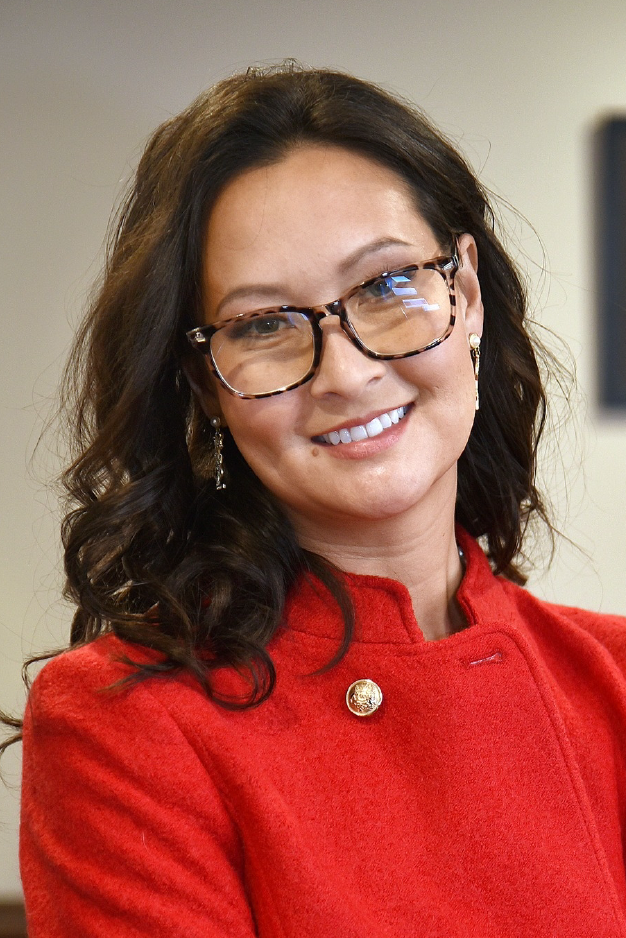 |
Candidate on the Republican Primary Ballot |
Below are candidate's answers to the 2024 State's Attorney Candidate Questionnaire.
 |
Candidate on the Republican Primary Ballot |
Below are candidate's answers to the 2024 State's Attorney Candidate Questionnaire.
Illinois and nationwide, Black and Latinx people are more likely to be incarcerated than white people. This disparity is identified as a significant driver in mass incarceration and results from over policing of people of color, who are more likely to be charged with more serious crimes, more likely to be pressured to plea and more likely to be sentenced to time in prison. The starting point for disparity begins with unnecessary interactions with law enforcement, that include the intensive use of surveillance tools in communities of color and higher rates of traffic and pedestrian stops for Black and Latinx people.
Do you believe that people of color in Illinois and Lake County are disproportionately incarcerated? What role, if any, do you believe that the State’s Attorney plays in the disproportionate incarceration of people of color? What specific steps will you/your office take to reduce the disproportionate incarceration of people of color in your first term?
COLE: AWAITING CANDIDATE'S RESPONSE
As State’s Attorney, what policies would you implement to address the other forms of racial bias that permeate our criminal legal system?
COLE: AWAITING CANDIDATE'S RESPONSE
In the wake of the murder of George Floyd, voters regularly point to the need for additional accountability for police as a step to improving police and community relations and enhancing community safety. Advocates, community groups and some observers believe that the office of State’s Attorney does little to advance police accountability owing to the close working relationship that exists between police and prosecutors.
As State’s Attorney, would you support the requirement for independent investigations not only in cases where a police officer kills a civilian, but also in cases where a police officer seriously injures a civilian, or stands accused of serious behavior outside their authority/scope of their duties including misconduct, repeated or excessive use of force or activity that violates the civil rights of civilians? Do you support the appointment of a special prosecutor for any case in which there may be a referral for possible prosecution?
COLE: AWAITING CANDIDATE'S RESPONSE
What additional steps will you take as State’s Attorney to enhance police accountability and build much-needed trust between the police and the public they serve?
COLE: AWAITING CANDIDATE'S RESPONSE
Criminal penalties, especially fines, often fall disproportionately and harshly on members of the community of low economic means. Policies of the State’s Attorney can alleviate or aggravate this reality.
Would you consider the adoption of policies that de-prioritize the prosecution of offenses like shoplifting and trespassing which are often associated with poverty and stigmatize people experiencing poverty as well as those experiencing mental health issues and substance use disorder?
COLE: AWAITING CANDIDATE'S RESPONSE
Data demonstrates that early involvement with the criminal legal system is the best predictor for future arrest, prosecution and incarceration. The decisions made by the State’s Attorney around juvenile matters will have a lasting impact on the lives and livelihoods of young people.
What policies will you advance to address the needs of youth who are disproportionately impacted by the criminal legal system – especially youth who are Black, Latinx and experiencing poverty? What policies will you adopt and/or continue to prioritize to address the harms created by the school-to-prison pipeline?
COLE: AWAITING CANDIDATE'S RESPONSE
While Illinois has protected access to reproductive health care and gender-affirming care in our state, policy makers and prosecutors in other states are seeking to extend their bans on this fundamental health care to Illinois.
As State’s Attorney, will you commit to policies that ensure that no one should have to face criminal investigation or charge in another state when seeking lawful health care in Illinois, especially abortion care and gender-affirming care?
COLE: AWAITING CANDIDATE'S RESPONSE
How would you plan to engage the community as State’s Attorney, including community-based organizations, criminal legal system and policing reform advocates, and other neighborhood-based groups as part of determining priorities and setting policies for your office?
COLE: AWAITING CANDIDATE'S RESPONSE
The State’s Attorneys Association holds great sway in Springfield in the debate and adoption of policies related to the criminal legal system. How would you attempt to influence the association’s agenda in a direction that advances civil liberties and civil rights, especially for the communities in your jurisdiction that are disproportionately harmed by regressive policies that gain traction in the legislature?
COLE: AWAITING CANDIDATE'S RESPONSE
Will you actively collaborate with legislators and advocates in Springfield to engage in debate about policies that impact the criminal legal system independent of the State’s Attorney’s Association? What are examples of priority legislation that you would support and oppose?
COLE: AWAITING CANDIDATE'S RESPONSE
Would you support or oppose the following:
|
Attempts to roll back the Pre-Trial Fairness Act |
COLE:
|
|
Increasing the threshold for prosecuting retail theft as a felony |
COLE:
|
|
Increasing penalties for gun possession |
COLE:
|
|
Retroactive sentencing that reduces length of stay for eligible incarcerated people |
COLE: |
|
Reestablishing opportunities for earned sentence credit to reduce long prison stays |
COLE: |
|
Limiting/Prohibiting the use of police officers as School Resource Officers |
COLE: |
|
Reclassifying low level drug possession from a felony to a misdemeanor |
COLE: |
|
Updating and publicizing a list of police officers in your jurisdiction with demonstrated credibility issues when testifying in court against a defendant along with a pledge not to call those officers |
COLE: |
|
Deprioritizing prosecutions for the transportation or possession of cannabis without a sealed container |
COLE: |
|
Deprioritizing prosecutions for consensual sex work |
COLE:
|
|
Deprioritizing prosecutions for driving on a suspended driver’s license or expired registration |
COLE: |